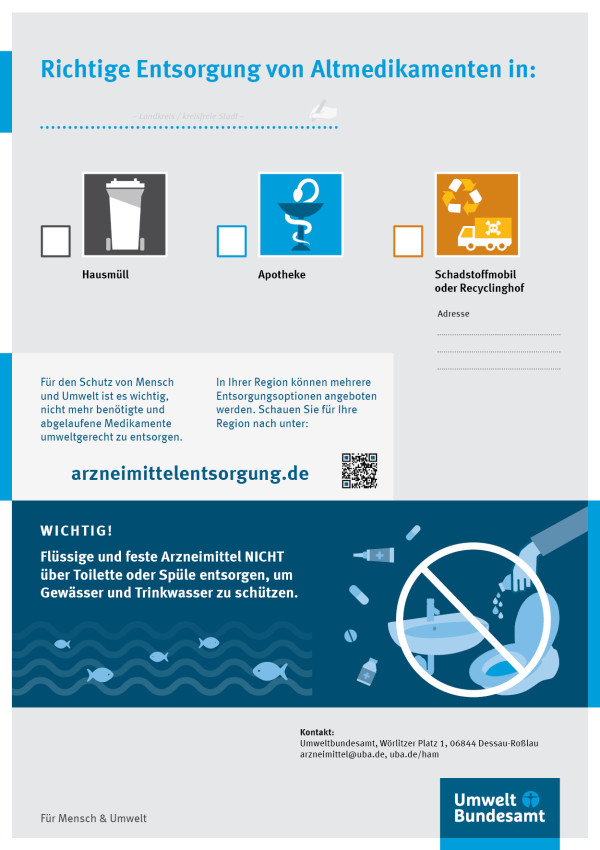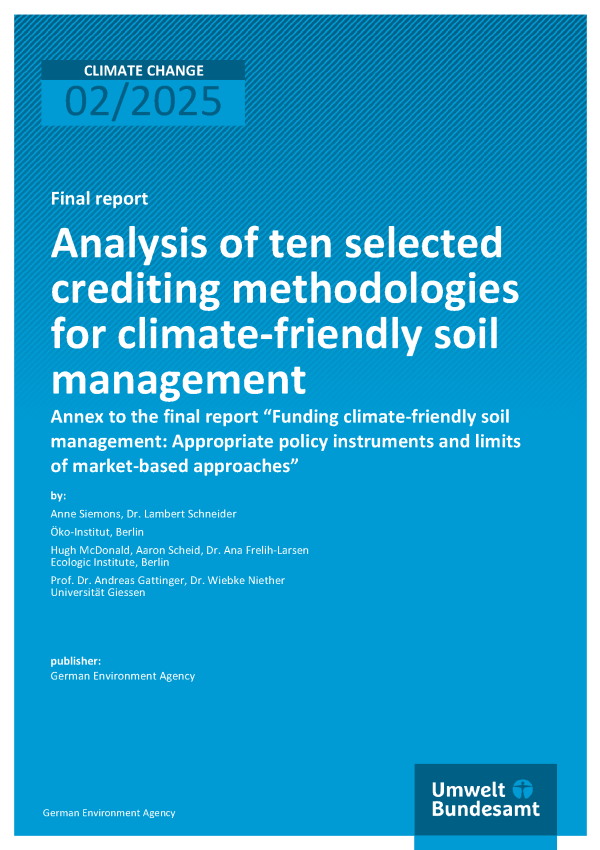Chemikalien
Poster: Correct disposal of leftover medicines
Für den Schutz von Mensch und Umwelt ist es wichtig, nicht mehr benötigte und abgelaufene Medikamente umweltgerecht zu entsorgen. In den deutschen Landkreisen und kreisfreien Städten werden unterschiedliche Entsorgungswege empfohlen.Dieses Poster bietet die Möglichkeit, die regional richtigen Entsorgungsinformationen schnell händisch zu ergänzen und es vor Ort zur Information für nicht deutschspra...read more









